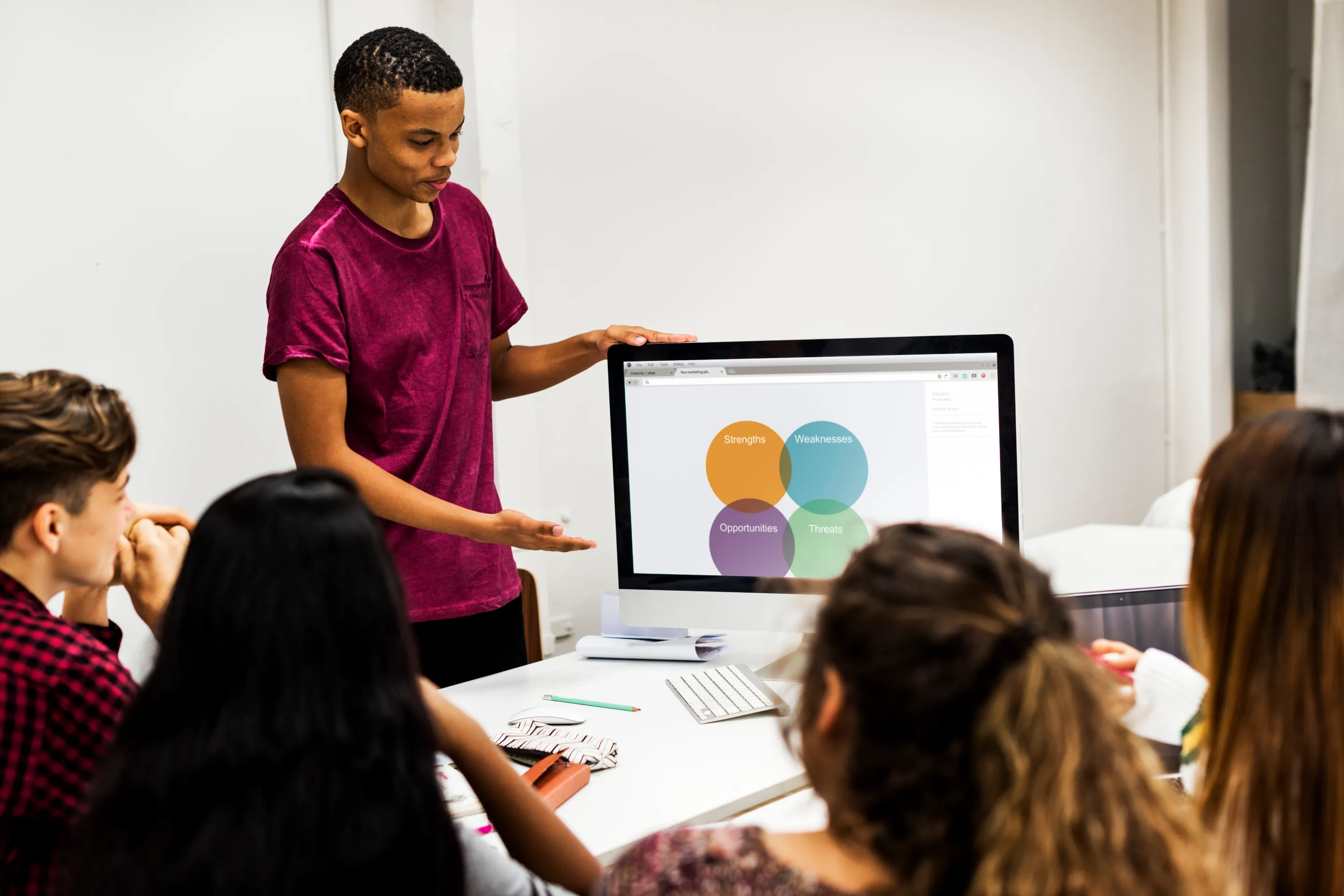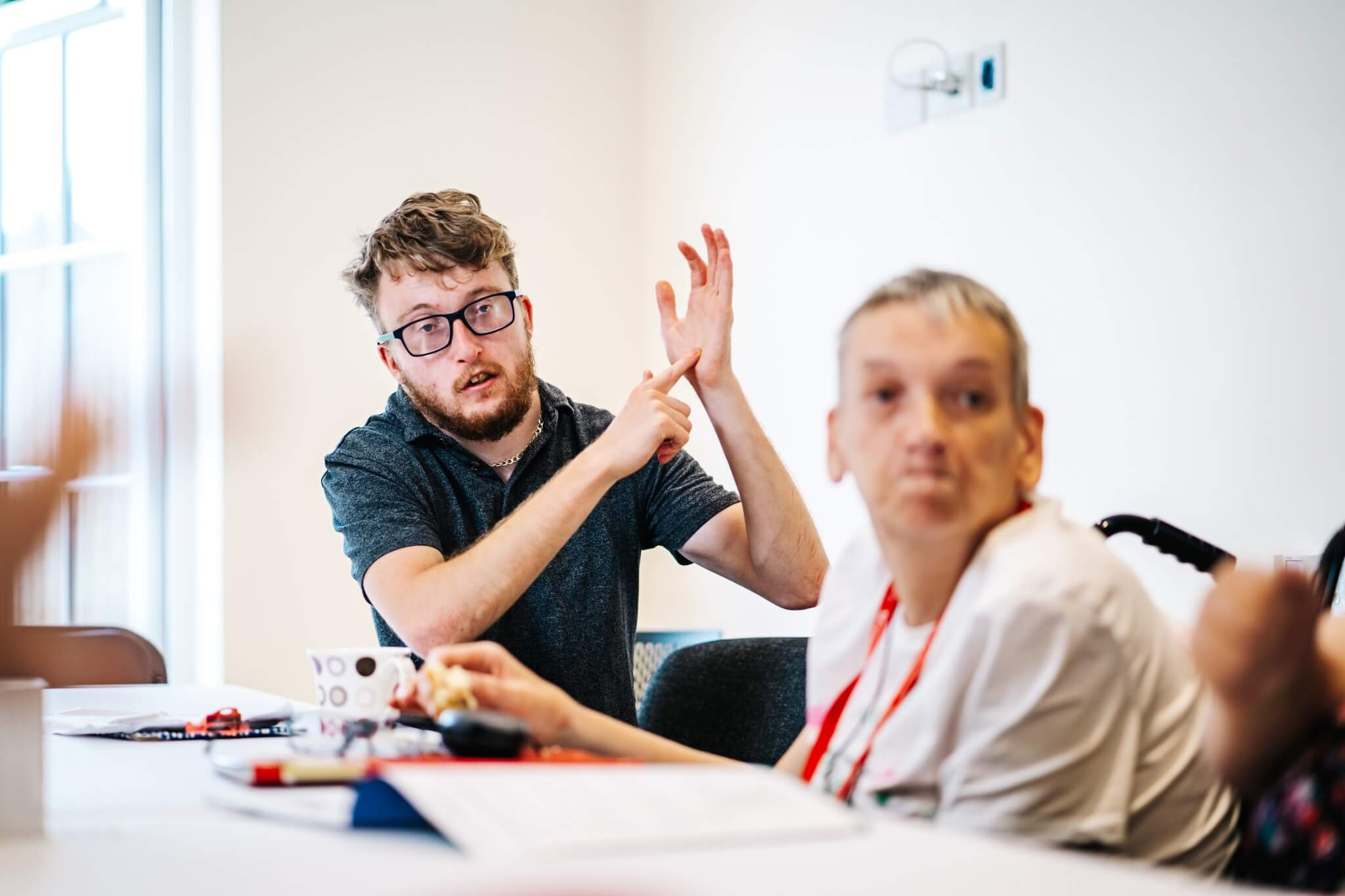How I Started Learning Different Stuff
Yo, so like two years ago I was pretty bored with regular school. Not gonna lie, most classes felt like they were teaching me things I didn't really care about, you know? My dad suggested I try some online courses during summer break because I was complaining a lot about being bored. At first I thought it was gonna be like more homework but different. Turns out I was wrong about that.
The first course I took was about video editing because I wanted to make better gaming videos for my YouTube channel. Nobody at my school teaches that kind of stuff. That's when things started making sense to me. When you actually want to learn something, it's way easier than when someone forces you to memorize dates or formulas you don't care about. I spent like three hours every day on that course and didn't even feel tired.
After finishing that first course, I realized something pretty important. School teaches you what they think everyone should know, but online courses let you learn what YOU actually want to know. That's a big difference. In Canada, we got good schools and everything, but they can't teach every single thing that exists. That's where the internet comes in handy.
This whole experience changed how I think about learning. Before, I thought learning meant sitting in a classroom listening to a teacher talk for an hour. Now I know there's different ways to get knowledge, and some of them work better for me. Let me tell you what I figured out from taking like fifteen different online courses over the past two years.
You Can Learn At Your Own Speed
One thing that's really cool about online courses is you don't have to keep up with other people. In regular school, if you don't understand something, too bad because the teacher's moving on to the next topic tomorrow. That always stressed me out, especially in math class. With online courses, I can watch the same video three times if I need to. Nobody's gonna judge me for that.
I took this course about graphic design last year and some lessons were super easy for me but others were really hard. The hard ones, I just paused and practiced for a few days before moving forward. In school, you can't really do that. Everyone has to finish the chapter by Friday or whatever. That pressure makes learning feel bad instead of good.
My friend Jake told me he tried learning guitar through online lessons and he said the same thing. He could spend two weeks on one chord if he needed to. His older brother took guitar lessons at a music school and had to learn new stuff every week even when he wasn't ready. Jake's actually better at guitar now than his brother because he took his time to really understand each part.
Rewatching Stuff Actually Helps
In class, if you zone out for like five minutes, you miss important information and can't really ask the teacher to repeat everything. With online courses, I can rewind the video. This helped me so much when I was learning about photography. There was this one lesson about camera settings that confused me the first time. I watched it again two days later and suddenly it made perfect sense.
Sometimes I watch videos at different speeds too. If someone talks really slow, I speed it up to 1.5x. If it's complicated, I slow it down to 0.75x. You definitely can't do that with a real teacher. This control over how fast or slow you learn makes a huge difference in actually understanding the material instead of just memorizing it for a test.
You Pick What Actually Matters To You
The biggest thing I learned from online courses is that motivation matters more than anything else. When I'm learning something I chose myself, I actually want to do the work. In school, I have to learn about the War of 1812 whether I care about it or not. Don't get me wrong, history's important and stuff, but when you're forced to learn it, your brain just doesn't absorb it the same way.
Last winter I got really interested in how websites work, so I took a course on basic web development. I spent hours and hours building little websites and fixing bugs. My mom was shocked because usually she has to force me to do homework. But this was different because I wanted to learn it. By the end of the course, I built a website for my uncle's small business in Toronto. He actually uses it for real customers now.
That's when I understood something important about how my brain works. I'm not lazy or bad at learning like some teachers made me feel. I just need to care about what I'm learning. Online courses let you explore your interests instead of following a curriculum that's the same for everyone. In Canada, we got students who want to be artists, programmers, mechanics, doctors, and everything else. Why should we all learn the exact same things in the exact same way?
Finding Your Actual Interests Takes Time
Another cool thing is you can try different subjects without committing to them for a whole semester. I started like five courses that I didn't finish because I realized they weren't for me. That's totally okay. In school, if you pick a class and hate it, you're stuck with it for months. With online courses, I tried animation, coding, music production, and video editing before figuring out what I really liked.
My sister's in university now and she told me she wishes she had explored more subjects through online courses before picking her major. She's studying business but she's not sure if she likes it. That's four years and a lot of money spent on something she's not even sure about. I'm planning to try out different things online before I have to make those big decisions.
Learning From Different People Helps A Lot
In school, you get one teacher per subject. If that teacher's teaching style doesn't match how you learn, you're kind of screwed. With online courses, you can find instructors who explain things in a way that makes sense to you. Some people are really good at using examples, others use diagrams, and some just explain things in simple words. You can pick what works for your brain.
I was struggling with understanding basic physics concepts until I found this course by a guy from Vancouver who explained everything using skateboarding examples. Suddenly I got it because I actually skateboard. My physics teacher at school uses car examples but I don't drive yet so those don't help me visualize what's happening. Having options for different teaching styles is super helpful.
Plus, online instructors are usually people who actually work in that field, not just teachers who studied how to teach. The guy who taught me video editing runs a production company in Montreal. He showed me real projects he worked on and explained problems he actually faced. That's way more interesting than textbook examples that feel fake.
Community Learning Is Different Online
Most online courses have discussion forums or Discord servers where students help each other. At first I thought this would be worse than asking a teacher in person, but it's actually pretty good. Other students explain things in teenager language instead of adult language, which sometimes makes more sense. Plus, people from different parts of Canada and even other countries share different perspectives.
When I was learning photography, someone from Alberta showed me how they photograph the Northern Lights. Someone from Nova Scotia shared tips for beach photography. I'm in Ontario so I learned things that people in my area wouldn't know about. That diversity of knowledge is something you don't get in a regular classroom where everyone's from the same city.
You Learn To Teach Yourself
This might be the most important thing I figured out. Online courses taught me how to learn on my own without someone standing over me. When you're watching videos and doing exercises by yourself, you have to develop discipline and problem-solving skills. Nobody's there to answer your questions immediately, so you learn to figure things out.
I got stuck on a coding problem once and spent two hours trying to fix it. In school, I would've just asked the teacher after five minutes. But because I was alone, I had to search for solutions, read documentation, and try different approaches. When I finally solved it, I felt amazing. More importantly, I actually understood the concept deeply because I struggled with it.
My parents noticed I got better at solving problems in general, not just in my courses. When my computer had issues, I figured out how to fix it myself. When I wanted to build a shelf for my room, I watched tutorials and did it. Online learning teaches you that you can figure stuff out on your own if you try hard enough. That's a skill school doesn't really teach because there's always a teacher to give you the answer.
Managing Your Own Time Is Hard But Important
Not gonna lie, learning online requires self-control. Nobody's making you do the work, so you have to motivate yourself. I failed at this a few times. I started courses and didn't finish them because I got distracted by video games or hanging out with friends. But failing taught me about time management.
Now I set specific times for my courses like "Monday and Wednesday after dinner for one hour." Treating it like a real commitment helps. I also learned to break big courses into small goals. Instead of thinking "I need to finish this whole course," I think "I need to finish this one lesson today." That makes it less overwhelming and more achievable.
School And Online Learning Work Together
I don't think online courses should replace school completely. School teaches you important things like how to work with others, follow schedules, and deal with people you might not like. Those are real-world skills too. But I think school and online learning should work together instead of being separate things.
Some of my teachers in Ontario are starting to use online resources in class, which is cool. My science teacher sometimes assigns Khan Academy videos for homework. My English teacher lets us choose articles to read online instead of only reading from the textbook. These small changes make school more interesting because there's variety.
I also use online courses to help with school subjects I struggle with. When I didn't understand something in math class, I found a course that explained it differently. That helped me pass my test. Online learning can support traditional education by filling in gaps and offering different perspectives on the same topics.
The Future Of Education Needs Both
I think the future of education in Canada should include more online options. Not everyone learns the same way, and online courses prove that different methods work for different people. Schools could let students pick some online courses as electives or use online resources more in regular classes.
Some universities in Canada already offer online programs, which is smart. My sister takes some of her university courses online and some in person. She says the online ones are better for lectures because she can watch them anytime, and the in-person ones are better for discussions and group work. Mixing both methods gives you the best of everything.
What This Means For My Future
Taking online courses changed how I think about my future career and education. I used to think I had to go to university right after high school and pick a major based on what makes good money. Now I know I can explore different fields through online learning before making big expensive decisions.
I'm planning to take more courses in areas that interest me over the next few years. Maybe I'll discover something I'm really passionate about that I didn't even know existed. Or maybe I'll combine different skills I learn online to create something unique. The possibilities feel endless when you're not limited to what your school offers.
Online learning also taught me that education doesn't stop when you finish school. My dad's been taking online courses to learn new skills for his job. He's like forty-five and still learning new things. That's pretty cool actually. It shows that you can keep growing and developing throughout your life, not just when you're young.
My Advice For Other Students
If you're reading this and thinking about trying online courses, just do it. Start with something you're genuinely interested in, not something you think you should learn. The whole point is to discover that learning can be fun when you care about the topic. There's tons of free courses out there too, so you don't need to spend money to get started.
Don't feel bad if you start a course and don't finish it. I've abandoned probably ten courses because they weren't right for me. That's part of the exploration process. You're trying to figure out what works for you, and sometimes that means discovering what doesn't work. Every failed attempt teaches you something about yourself.
Also, don't compare your progress to other people. Some students finish courses super fast, and others take months. It doesn't matter as long as you're actually learning and understanding the material. The goal isn't to collect certificates, it's to gain real knowledge and skills that you can use.
Resources That Helped Me
I mostly used platforms like Coursera, Udemy, and YouTube for my learning. YouTube is great for free content, especially for creative skills like art, music, and video editing. Coursera has university-level courses that give you certificates, which might be useful for college applications. Udemy has lots of practical courses for specific skills like programming or design.
For Canadian students specifically, some courses even cover topics relevant to Canada like Canadian history, Indigenous studies, or business practices in Canadian markets. It's worth looking for content that connects to where you live because it makes the learning more relevant to your actual life.
Final Thoughts On Learning Differently
Online courses showed me that there's no single right way to learn. School works for some people, online learning works for others, and most people probably need a mix of both. The important thing is finding what helps you actually understand and remember information instead of just memorizing it for tests.
I'm not saying I hate school now or anything like that. I still go to class, do my homework, and try to get good grades. But I don't see school as my only source of education anymore. I see it as one tool among many for learning about the world. Online courses, books, documentaries, podcasts, and even conversations with people all teach me different things.
The biggest lesson from all of this is that I'm responsible for my own education. Teachers and schools can help, but ultimately it's up to me to seek out knowledge and develop skills. Online courses gave me the confidence to take control of my learning instead of just passively receiving whatever information schools decide to give me. That mindset shift is probably more valuable than any specific skill I learned from the courses themselves.




